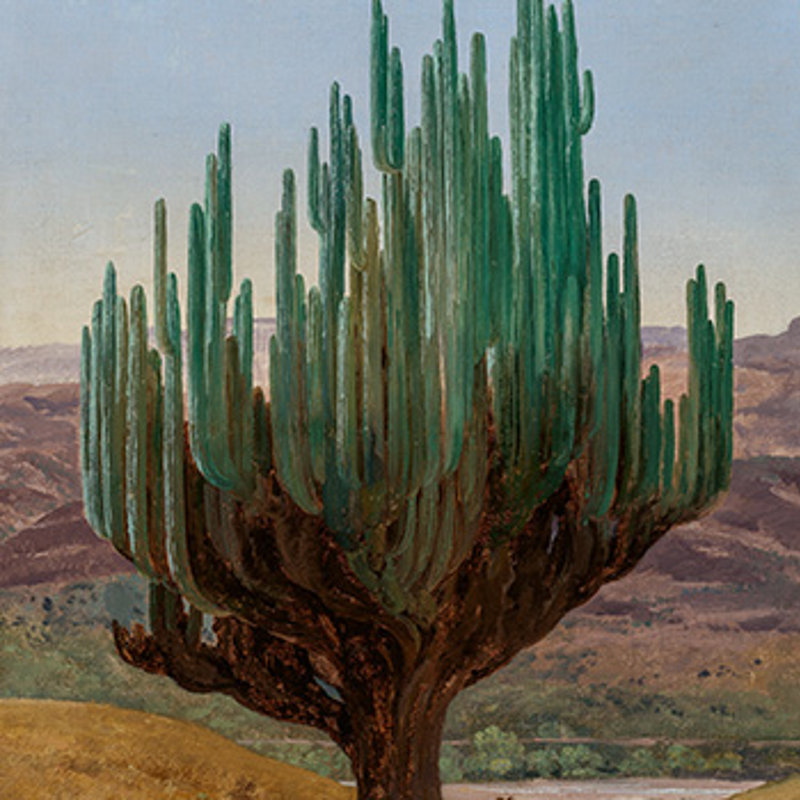Each Friday, for the whole day, until 17 August, we invite visitors to pay what they wish for José María Velasco: A View of Mexico.
This means, from 10am to 9pm on any Friday, you can pay as little as £1 or as much as you’d like to enjoy this celebration of Mexico's much-loved artist and his spectacular landscapes at.
Please note that Pay What You Wish tickets are available on a first come, first served basis. If these tickets sell out, be aware that other concessions tickets are available throughout the exhibition run.
*Pay What You Wish tickets are available to book between 10am-9pm each Friday until 17 August.
José María Velasco: A View of Mexico
See the first UK exhibition of Mexico’s much-loved artist, José María Velasco.
Velasco, working in Mexico in the 19th century, was a man of many interests. He was fascinated by advances in geology, the archaeology of his home country, the study of local flora, and the increasing presence of industrialisation.
He painted the sweeping landscapes of the Valley of Mexico, the home of modern-day Mexico City, with exquisite detail. His impressive panoramic views of the valley reveal allusions to Mexico's historic past and its rapidly modernising present.
Velasco was keenly aware of his country’s industrialisation, capturing expanding train lines and factories alongside botanically accurate studies of plants. His scientific eye inspired his art, and his love of geology is clear to see in his detailed depictions of rocks and volcanoes.
This exhibition, the first ever dedicated to a historical Latin American artist at the National Gallery, marks the 200th anniversary of diplomatic relations between Mexico and the UK. And it celebrates Velasco’s place among the great 19th-century landscape painters.
Exhibition organised by the National Gallery and the Minneapolis Institute of Art. Curated by Dexter Dalwood and Daniel Sobrino Ralston, the National Gallery’s CEEH Associate Curator of Spanish Paintings, from an initial concept by Dexter Dalwood.


The Sunley Room exhibition programme is supported by the Bernard Sunley Foundation

Lord and Lady Petitgas


